Owning a dog isn’t always a bed of furry roses. Just like raising a child, you’ll have to deal with behavioral issues, health problems, and whatnots. For a first time English Bulldog owner, it’s no different. The good thing is that this breed is suitable for novice pet owners, all thanks to its laidback nature. But to ensure that you have your expectations in the right place, I listed some Bulldog facts to help you out.
One of the biggest mistakes of first-time dog owners is expecting that they will get a perfect canine. But if you got charmed by a Bulldog, you should expect the following:
1. They are indoor dogs
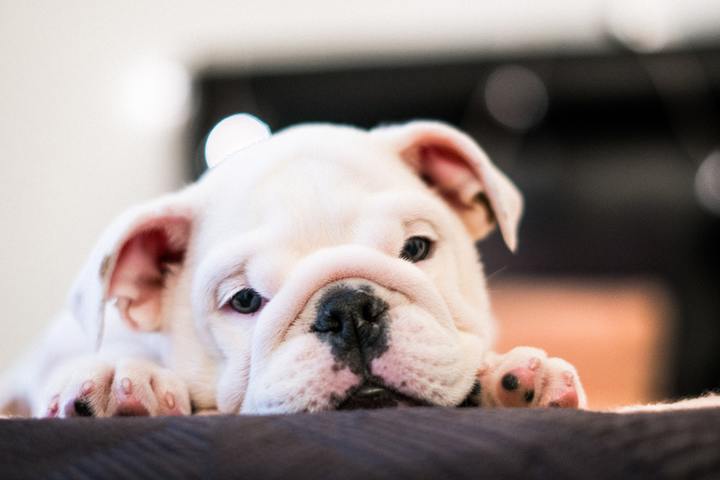
Remember that your English Bulldog is far from Golden Retrievers or Beagles. You can’t expect a Bulldog to run around all day full of energy. Due to their stocky bodies and heavy-boned structure, Bulldogs are best kept as indoor dogs.
Walks are still a good source of exercise, but you should keep it short. And if you’re going to let the pooch play in the yard, always be present. Bulldogs can easily have foreign objects stuck up their nose, especially grass blades.
Also, Bulldogs can’t tolerate extreme temperatures very well. They are also more like couch potatoes than energy balls.
Moreover, keeping your Bulldog indoors will also prevent potential skin irritations. Due to their short coat, English Bulldogs can easily suffer from dermatitis and a slew of skin problems.
If you have to take your Bulldog for potty trips during winter, always put them on a dog coat. This will keep them warm while they do their business.
2. They are clingy
Of all the dogs I’ve owned, English Bulldogs are the clingiest. They are companion canines, so they thrive in the presence of other people and pets. However, this also means that they are notorious for separation anxiety.
Separation anxiety affects at least 20% to 40% of all dogs. It’s a fairly common problem, especially for this breed. Excessive barking, reluctance to eat, self-harm, increased drooling, and accidents are some of the tell-tale signs of separation anxiety.
Take note that you should address separation anxiety in Bulldogs right away. Over time, an anxious Bulldog will become destructive and noisy. Some would even develop obsessive self-licking due to extreme stress.
Training is very important if you want your Bulldog to get used to your working schedule. Other Bulldog owners opt to get a second dog to accompany their resident canine. Interactive toys and alternative activities will also help curb separation anxiety.
3. They don’t seem to get full
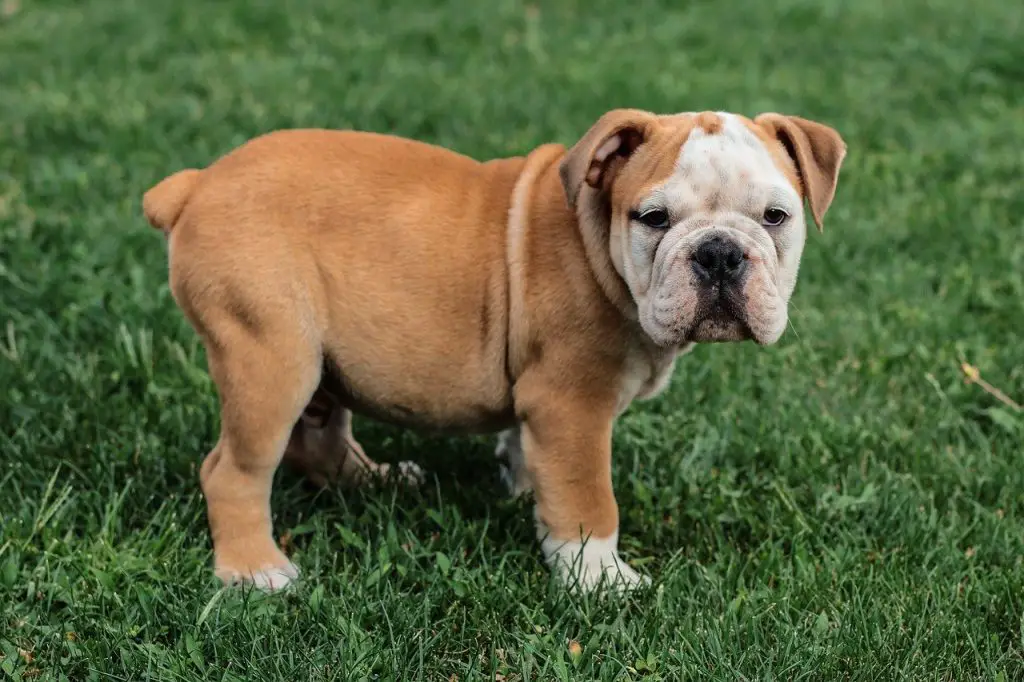
One thing you should know and probably have observed in Bulldogs is their massive appetite. This dog doesn’t seem to get full and will continue chewing as long as there’s food on the bowl.
This is why you should always practice portion control when you own an English Bulldog. No matter how much your dog whines and cries, never give in to their puppy eyes. Bulldogs can easily pack excess calories, which will lead to obesity. And with their body structure, they’re not made to carry excessive weight.
Aside from their meals, you also have to mind the treats you’re giving. You should also factor this into the dog’s overall caloric intake per day to prevent unnecessary weight gain.
4. They have a fair share of allergies
Bulldogs are also notorious for their allergies. Food allergies top the list, especially if the dog is put on a low-quality food product. This will lead to diarrhea, vomiting, rashes, flatulence, and other adverse symptoms.
To be fair, any dog can have food allergies, but Bulldogs have a higher predisposition to the condition. And contrary to some beliefs, feeding your dog the same allergen-laced food won’t cure its allergy. It will just make it worse.
While specialist dog food is expensive, it’s better than emergency visits to the vet clinic. Also, consider Limited Ingredient Diet (LID) if your Bulldog is prone to stomach upset. Since it has fewer ingredients, it’s less likely to cause digestive problems. It will also be easier for the vet to detect allergies.
Aside from food allergies, your Bulldog may also suffer from skin allergies. This is mainly attributed to their short coat that does little in protecting them from various irritants.
If you live in the south, never let your Bulldog stay outdoors for long during pollen season. Contact dermatitis is rampant during this season, and vet clinics are often packed with affected canines.
5. They are prone to overheating
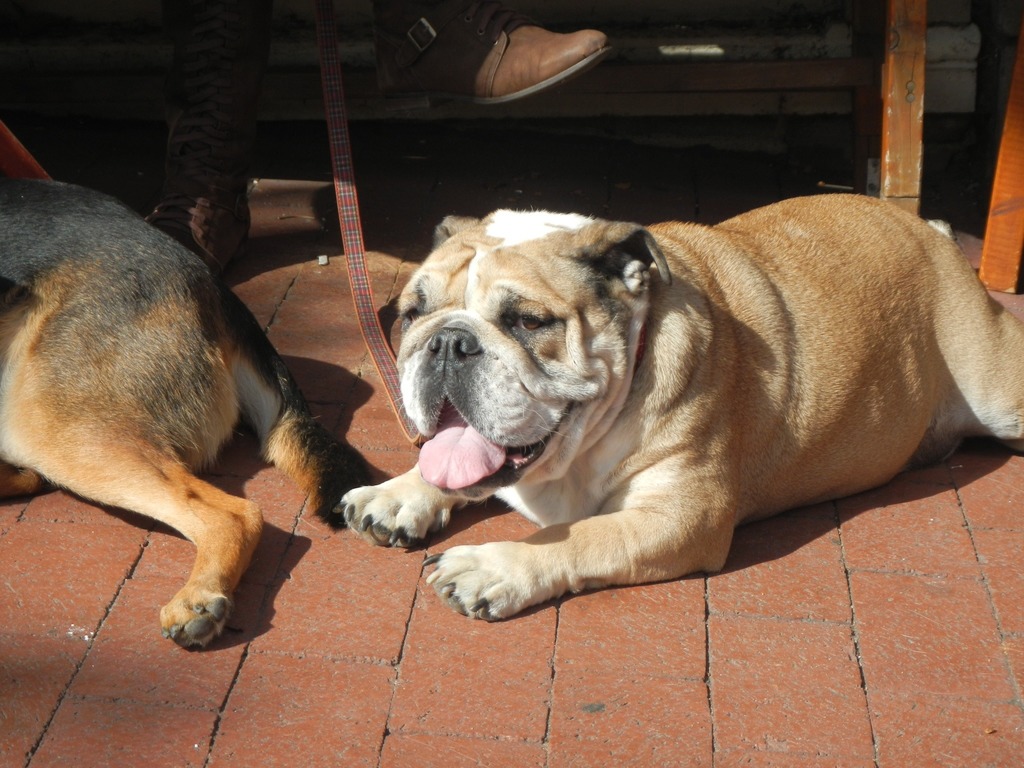
Bulldogs are snub-nosed or brachycephalic dogs. This means that their airways are short and can easily collapse when exposed to heat stress. Even a short walk in a hot afternoon can cause overheating on a Bulldog.
Some signs of overheating include panting, weakness, vomiting, reddish ears, and dark or deep red tongues. In worst cases, your Bulldog will have a seizure and will collapse.
Overheating is an emergency situation that requires immediate treatment. Here are some steps to help your Bulldog cool down:
- Bring it to a shaded and well-ventilated area.
- Give the dog small amounts of cool water at a time.
- Never give the pooch an entire bowl, or it will gulp large amounts, which can cause more problems.
- You can also place your Bulldog in a small basin with water. Remember that you should never use ice-cold water as this can lead to shock, which will also result in breathing problems.
If your place experiences scorching summer days, you should schedule outdoor trips with your Bulldog before dawn or after dusk. These are cooler hours that are safer for your dog.
6. Their wrinkles need a lot of care
Due to their skin folds, Bulldogs require intensive wrinkle care. If not groomed properly, a Bulldog’s coat wrinkle can become the harborage of ticks and fleas. It will also get inflamed and smelly as dirt and allergens get trapped.
For first time Bulldog owners, wiping the skinfolds daily would be a big help. You should also pull the wrinkles taut to brush the fur on them. This will help remove superficial dirt while allowing you to spot the presence of parasites.
You should also give a lot of attention to your Bulldog’s face wrinkles. Their eyes can get watery and teary. And when it dries, it can harbor dirt and a nasty smell. If not removed, it might become a precursor to infections.
My Bulldog has a large wrinkle under the eye, so I always clean it with a dog wipe daily. I don’t use scented or alcohol-based cleaners as they can easily irritate the dog’s eyes.
Also, if your dog’s wrinkles got infected, you should bring them to the vet. The veterinarian may prescribe a topical medication like Monistat or Malacetic.
7. You’ll need a Bulldog-experienced vet
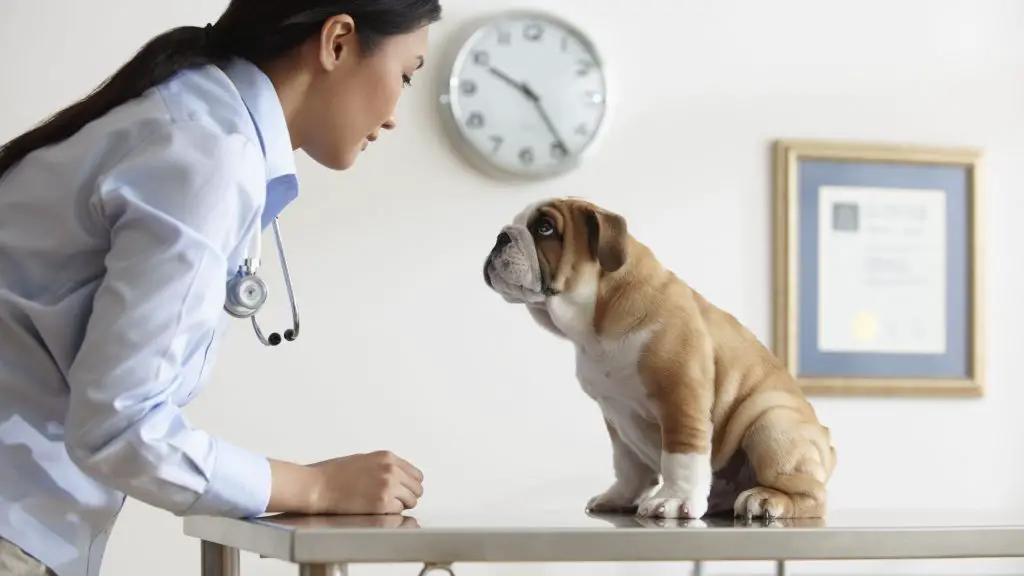
Another thing I highly recommend to first time owners is finding a Bulldog-experienced vet. To be fair, any vet can do a good job of treating your dog, but a Bulldog-experienced vet has its perks.
Bulldogs are very different from other breeds, so they require special treatment. Some medications used on other dogs can be harmful to Bulldogs.
For example, veterinarians have to observe extra care when administering anesthesia to a Bulldog. Due to its narrower airway, the pooch can have trouble breathing under sedation.
Always talk to the vet and don’t hesitate to ask if there are other Bulldogs being taken in the clinic. I recommend scouting multiple vet clinics and not just the one closest to your place.
This is especially true if your Bulldog has health problems. In this case, choose vet clinics that are connected or attached to vet schools. This guarantees the expertise of the veterinarians, and you’ll surely get referrals if your dog requires a specific treatment that isn’t available in the clinic.
8. You badly need to get pet insurance
As I mentioned earlier, Bulldogs tend to develop several allergies. They are also prone to various health problems like hip dysplasia, cherry eye, heart issues, pneumonia, and other respiratory problems. This is why investing in bulldog pet insurance is a must. While the monthly cost might be added burden on your pocket, you’ll thank yourself when your Bulldog got sick.
Aside from that, many professional breeders will include pet insurance on their contract for the puppy buyer. You’re compelled to buy pet insurance for the Bulldog. Otherwise, the breeder has the right to file a complaint.
If you’re new to pet insurance, the following are some of the best providers in the market:
- Trupanion
- Embrace Pet Insurance
- Healthy Paws
- ASPCA Pet Health Insurance
- TrustedPals
- Figo Pet Insurance
9. You need a ‘home emergency kit’
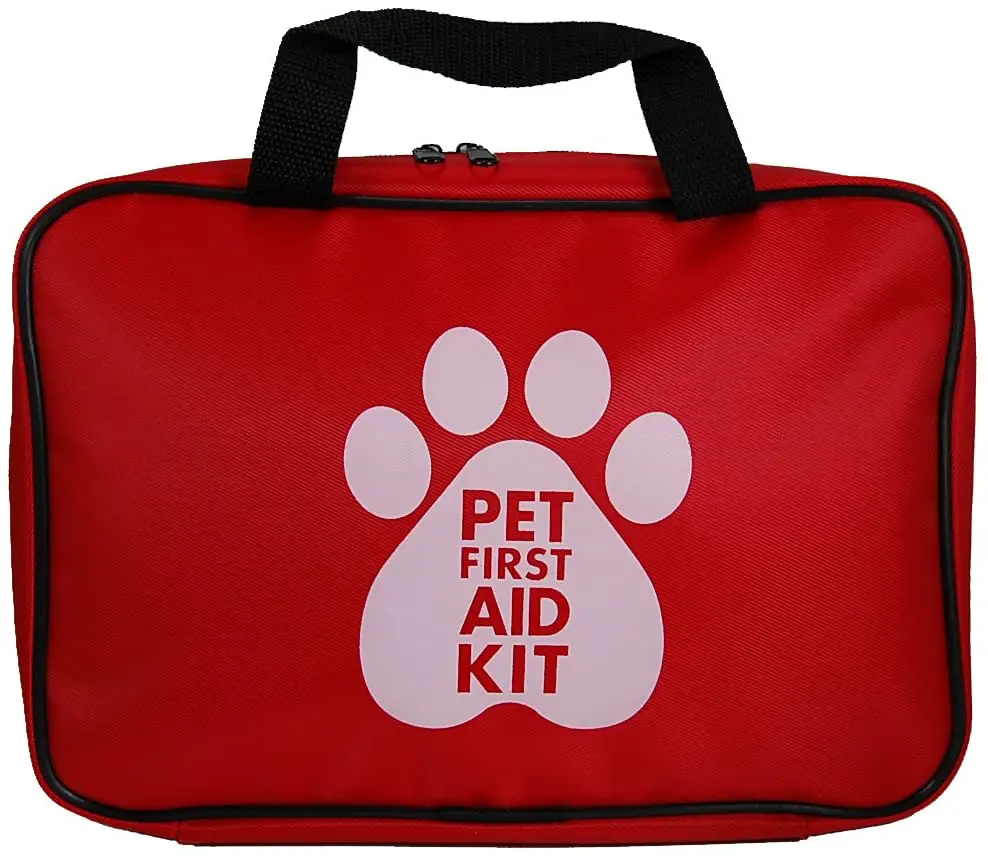
A home emergency kit is necessary for all pet owners. But for Bulldogs, you need to add a few specific items.
You need gauze, adhesive tape, cotton balls, hydrogen peroxide, antibiotic spray, a digital thermometer, and tweezers for the essentials. For Bulldogs, you should also add a topical cream or ointment that you can use for insect bites or rashes. It’s best to ask your dog’s vet for this and never use human-grade medications unless approved by the vet.
Other things you can put on your dog’s emergency kit is a flashlight, magnifying glass, and scissors. Always keep this kit accessible at all times, especially if you’re taking your dog on vacation.
10. You need patience while training
Lastly, you need to stay patient during training. Bulldogs are smart dogs, but their stubborn personality can get in the way. Always take it slow and use food as positive reinforcement.
Unlike Golden Retrievers or German Shepherds, Bulldogs will take more time to learn a trick or two. Specifically, you need to be patient with housebreaking as Bulldogs often struggle with it. Crate training is the key here to avoid accidents around the house.
If your Bulldog is proving to be a challenge to train, don’t hesitate to enlist the help of a professional dog trainer.
Frequently Asked Questions
Q: Are English Bulldogs good for first-time owners?
A: Yes, English Bulldogs are excellent pets for first-time owners. They are laidback, affectionate, and clingy canines that don’t require too much exercise. This doggo will be happy to snuggle with you on the couch. Just note that they don’t like being left alone. Other than that, Bulldogs will be an amazing company for you and your family.
Q: Are English Bulldogs easy to maintain?
A: English Bulldogs are quite high-maintenance canines that are costly to maintain. They require regular vet checks, high-quality food, and medications in case they develop a health problem. All of these will surely add up over the months.
Q: Is male or female English Bulldog better?
A: In general, male Bulldogs are more playful than their female counterparts. However, the personality of a dog is more than just its gender. It also depends on the socialization, training, and temperament of its parents. Nevertheless, both male and female English Bulldogs are amazing pets for families, even with kids.
Q: At what age do Bulldogs calm down?
A: Most Bulldogs will start to calm down at 4 to 5 years old. However, some Bulldogs get past their puppy attitude earlier than most. Training will play a big role if you want your pet to grow disciplined.
Q: How can I tell if my English Bulldog is purebred?
A: You can easily tell if your Bulldog is purebred by checking the shape of its ears, jaws, and head. But the guaranteed way to prove it is to ask the breeder for an AKC registration certification. This is solid proof that the dog is purebred and has passed the breeding standards of kennel clubs.
Final words
If you’re a first time English Bulldog owner, you have to prepare for all kinds of situations. Bulldogs aren’t perfect dogs, but their good qualities outshine the bad. You just have to practice more patience and never skimp on veterinary care. In the long run, your Bulldog will reward you with unconditional love.

